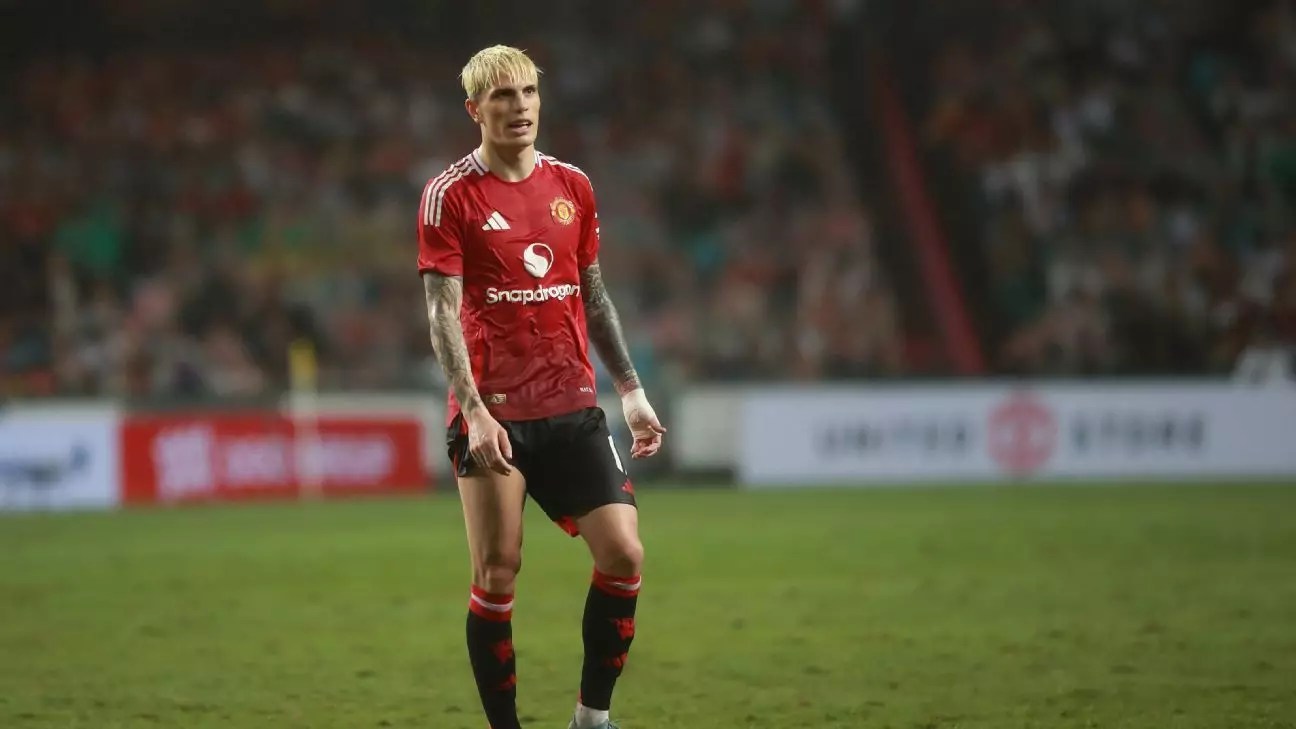Manchester United’s recent transfer approach reveals more than just tactical adjustments; it signals a club embracing adaptability amidst uncertainty. Rather than rushing to resolve squad gaps, the management under Ruben Amorim exhibits patience and strategic planning. Instead of creating panic, they lean into developing internal options and leaving room for last-minute changes, embodying a confident yet cautious attitude towards the transfer market. This stance reflects an awareness that football dynamics are unpredictable, and flexibility is essential for long-term stability.
Amorim’s comments demonstrate a clear belief in the squad’s talent and potential. His openness about the possibility of reintegrating players like Garnacho, Antony, Sancho, and Malacia indicates a focus on internal morale and group cohesion. Rather than forcing departures or panic-buying, the club is signaling readiness to adapt based on transfer outcome. This attitude exudes a sense of control, positioning United not as a club driven solely by desperation but by strategic clarity.
Trust in Homegrown Talent and New Signings
Amorim’s emphasis on integrating existing players, combined with the early arrival of signings like Matheus Cunha and Bryan Mbeumo, suggests a philosophy rooted in trust and resilience. Rather than fussing over an immediate striker addition, the manager’s tone reveals belief in the squad’s current capabilities, especially with promising young players such as Rasmus Hojlund and Josh Zirkzee. The club’s strategy seems to prioritize tactical flexibility—allowing players to compete for spots rather than hand out guaranteed positions.
Additionally, stable internal competition is presented as a positive, especially for players aiming for international recognition, like those eyeing World Cup qualification. Amorim champions a competitive environment designed to push players to perform at their best, rather than coddle them in a settled hierarchy. This fosters a culture of ambition and self-improvement, crucial for a club looking to reclaim its status at the top.
The Philosophy of Patience and Long-term Vision
In an era where instant success often dictates club decisions, Amorim’s balanced reasoning showcases a different approach—one rooted in patience and calculated optimism. He acknowledges that the transfer market can be unpredictable, with clubs waiting until the last moment for better deals or outcomes. Yet, he maintains unwavering confidence that if players are meant to remain, they will stay. This perspective not only alleviates pressure but also frames the transfer window as a process rather than a crisis.
Arguably, this stance reflects a broader belief in nurturing internal talent and trusting the club’s infrastructure to develop players. Amorim’s readiness to work with current squad members—even if not initially planned for a starting role—attests to a mature understanding of team dynamics. The message is clear: success isn’t solely dependent on transfers but on building a cohesive, competitive environment where players earn their roles through effort.
Strategic Calm in a Competitive World
This approach challenges the often frantic nature of modern football transfers, which are driven by quick fixes and external pressure. By projecting calm and confidence, Manchester United seems to be communicating that stability and strategic patience could lay the groundwork for sustainable success. Amorim’s comments also send a message to rival clubs: United is not desperate, and its internal options are robust enough to handle uncertainties.
Furthermore, this attitude might serve to boost internal motivation, as players understand their roles are not predetermined but earned. It emphasizes meritocracy and resilience—values that can foster a stronger, more cohesive squad. The manager’s statements suggest an optimistic belief that the club’s current squad, complemented by smart signings, possesses enough quality to compete effectively without the chaos of hurried transfer decisions.
Manchester United’s current transfer stance exemplifies a philosophy of confident patience, internal faith, and strategic adaptability. Under Amorim’s leadership, the club isn’t just chasing quick fixes but building a foundation for sustainable success rooted in trust, internal competition, and tactical resilience. While others may panic or rush, United appears to be carving a path driven by conviction and long-term vision, which could ultimately redefine its stature in world football.


Leave a Reply